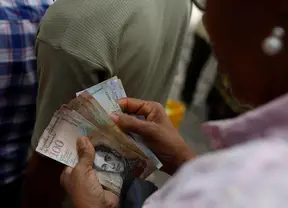
The recent sharp depreciation of China's currency is just a temporary correction after a change in the country's central parity rate formation system.

The Chinese currency renminbi (RMB), or the yuan, should remain strong in the long run, a central bank official said Thursday, after worries that the bank's adjustment of the exchange rate mechanism earlier this week would lead to a slump in the currency.

The central parity rate of the Chinese currency renminbi, or the yuan, strengthened by 35 basis points to 6.3975 against the U.S. dollar on Friday after a three-day slump, according to the China Foreign Exchange Trading System.

Chinese yuan extended its decline on Wednesday but is unlikely to depreciate significantly as the central bank and stable fundamentals will not allow the currency to go into freefall.

The International Monetary Fund (IMF) on Tuesday welcomed China's move to improve its foreign exchange formation system and said a more market-oriented exchange rate would facilitate the Special Drawing Right (SDR) operation if RMB was included in the basket.

The central bank on Tuesday revised the yuan's central parity rate formation system to give the market a louder voice, and the market answered - with a sharp fall.

Chinese currency continued to fall on Wednesday after the central bank reformed the exchange rate formation system to better reflect the market.

China's currency fell sharply in value on Tuesday following the central bank's decision to improve its "central parity system" to better reflect market development in the exchange rate between the Chinese yuan against the U.S. dollar.

Lock-up shares worth nearly 55 billion yuan (nine billion U.S. dollars) will become eligible for trade on China's stock market next week.

More Chinese property developers are using the domestic bond market for cheaper funding than offshore bond issuance, ratings agency Standard & Poor's said in a report on Thursday.

The Australian share market opened lower on Wednesday after weakness in the country's four biggest banks.

U.S. stocks extended losses amid generally downbeat economic data on Monday, as plunging oil prices hit Wall Street sentiment.

Samsung Electronics posted 6.9 trillion won (5.9 billion U.S. dollars) in operating profit in the second quarter, missing market estimates on weak demand for Galaxy S6 smartphones, a regulatory filing showed Thursday.

International Monetary Fund (IMF) chief Christine Lagarde on Wednesday downplayed China's recent market volatility and said Chinese economy is resilient and the slowdown in growth is under control.

U.S. Federal Reserve on Wednesday said the country's economy and job market continued to improve since June, a sign that the central bank remains on track to raise interest rate later this year. But it didn't provide a clear signal for the rate hike timetable.

The north China city of Tianjin achieved its biggest overseas financing for city construction in the Hong Kong market, suggesting global investors are still interested in Chinese local bonds despite an economic slowdown.

China Securities Finance Corporation, Ltd. (CSF) will continue to buy stocks to stabilize the market, the securities watchdog said on Monday.